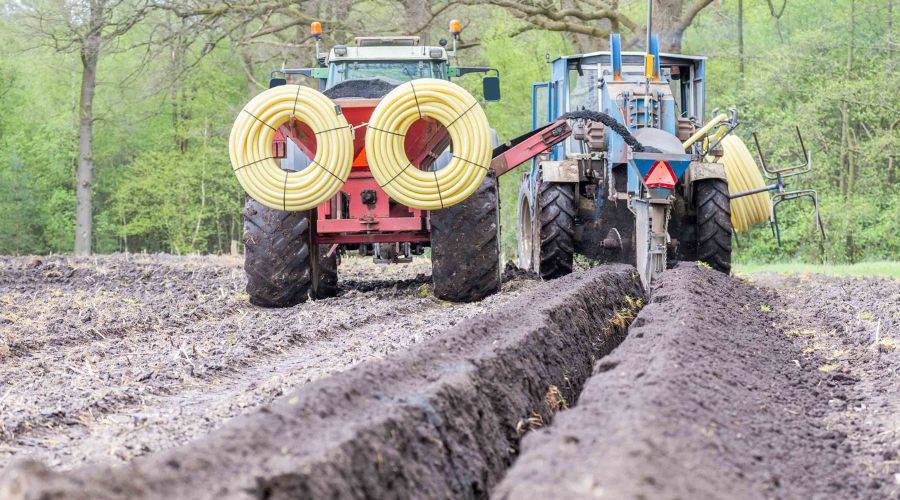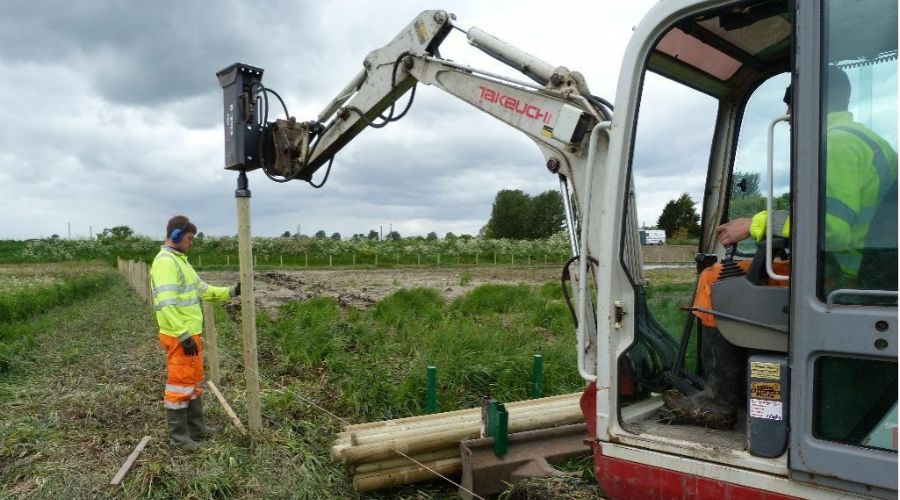How to farm safely near buried pipelines
21st July 2025
With buried pipelines posing a serious risk and high costs if damaged, UKOPA provides some advice for farmers.

Carl Scott, chair of the United Kingdom Onshore Pipeline Operators Association’s (UKOPA) Pipeline Infringement Working Group, outlines advice and good practices when installing land drains, clearing ditches, or undertaking other works near buried pipelines.
There are more than 27,000km of buried pipelines across the UK, used to carry a range of products at high pressures of up to 100 bar.
The pipelines are used to safely transport flammable and potentially explosive substances such as oil, natural gas, ethylene, and petroleum, as well as less obviously hazardous materials like water.
If damaged, they pose a serious risk to both people and the environment and repair costs can run into the millions of pounds.
Vital safety information
To remain safe, before undertaking any work within 50m of high-pressure pipelines, landowners must contact the pipeline operator especially when pipelines may be at shallow depths.
Operators can then provide the landowner with vital safety information and support, including visiting the site to clearly mark the pipeline’s location, helping ensure the work can proceed safely.
It is also the landowner’s responsibility to ensure that all contractors, employees, and temporary workers are made aware of pipeline locations and safety measures before starting any work.
Certain agricultural activities pose significant risks to buried pipelines – particularly drainage installation, repairs, and ditch clearing.
These operations often involve heavy machinery that can encroach dangerously close to underground pipelines, which are typically buried at a nominal depth of around 1m. However, in some cases, they may be located at even shallower depths.
To safeguard both landowners and pipelines, anyone planning work such as ditching, fencing, digging, or mole ploughing within 3m of a buried pipeline are legally required to first obtain permission from the pipeline operator. This isn’t to restrict work, but to ensure it is carried out safely.

Know before you dig
Before starting any work, it is essential that landowners and contractors are aware of buried pipelines in the vicinity. Using services like Line Search Before U Dig (LSBUD) can also help ensure landowners have the latest information.
If there is a pipeline within 50m of the proposed works, pipeline operators request to be notified of any works so they can provide safety advice and support, including providing maps, safety guidance, and even visit the site to mark out the exact location of pipelines.
The locations of pipelines are normally indicated by marker posts at the edges of fields; however, marker posts can be accidentally moved or damaged, and pipelines may not run in a straight line between posts and aerial markers.
To help ensure the best and safest outcomes for all, farmers or contractors are advised not to undertake any works within 3m of a buried pipeline without following the guidance below:
- Give pipeline operators sufficient notice before works begin so they can provide the necessary support
- Do not proceed with works until consent is given by the pipeline operator
- Never assume the route or depth of pipeline
- Be aware that pipeline depths vary and can often be found less than 1m below the surface
- Remember pipelines do not always run in straight lines between marker posts
- Be aware that other safety-critical infrastructure, such as cables, valve chambers and standpipes, can be buried along the pipeline lengths; these can be found at even shallower depths than the pipeline.
Legal requirements
Damage to pipelines can pose a significant risk to life, as well as potentially serious environmental damage if a product is released.
It can also lead to prosecution by the HSE as Regulation 15 of the Pipelines Safety Regulations Act states: ‘No person shall cause such damage to a pipeline as may give rise to dangers to persons.’
Working near pipelines without taking the correct precautions can have serious consequences and could lead to potential prosecution. It is the landowner’s responsibility to ensure that employees, contractors and others operating on their land also comply with regulations.
To support those working in the agricultural sector, UKOPA offers a range of educational resources including a Working Safely Near Pipelines video, which provides a clear visual overview of what to do and what to avoid.
There is also an online ‘Working Safely Course’ available for employees or those working on farm which is an essential learning tool for anyone planning or conducting work near buried pipelines. Both resources are available via the UKOPA website.
Safety on farm remains critically important, not just during Farm Safety Week, but every day.
If you have any questions about a pipeline on your land, contact your pipeline operator who is there to help.
Read more farm safety news.
